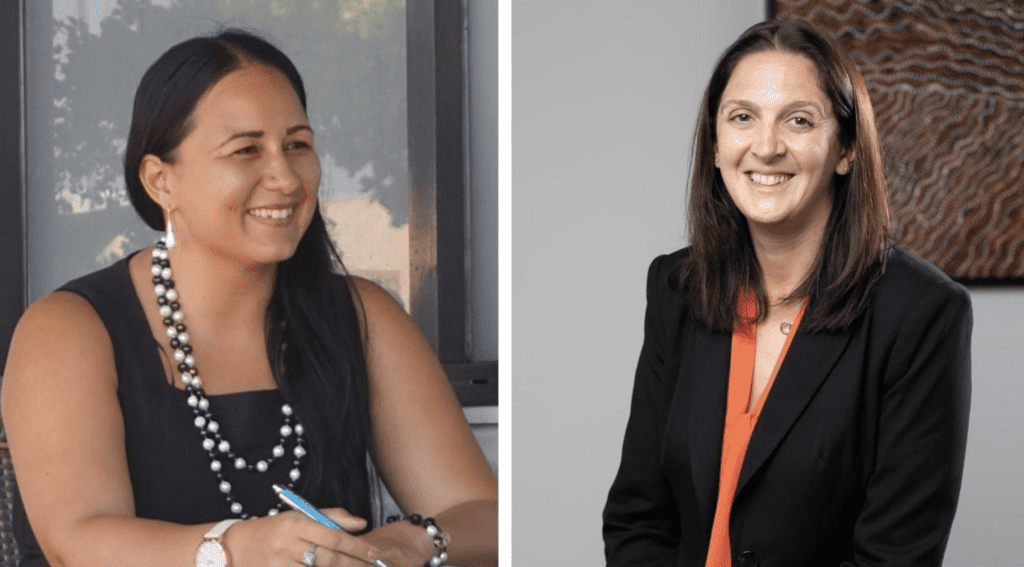The 2021 theme for Indigenous Business Month, “Powering the Indigenous Economy”, called for the Indigenous business sector and its allies to connect and showcase the economic contributions of Indigenous businesses, individuals and organisations. First Nations Foundation asked Indigenous Business Australia (IBA) to shed some light on their insights to the month.
IBA serves, partners, and invests with Aboriginal and Torres Strait Islander people who want to own their future. Their programs support Indigenous Australians to buy their own homes, be successful in business, and invest in commercial ventures that provide strong financial returns.
What makes a good ally?
A good ally is someone or another organisation/agency that has a common purpose and vision to your own, who shares similar values and obtains complimentary skills or experiences that can contribute to achieving a common cause or objective.
At IBA, we have developed a Strategic Partnerships Framework that enables us to partner with allies that assist to develop new ways to meet our customer needs, expand our research and understanding, and become a powerful advocate to demonstrate that Aboriginal and Torres Strait Islander people are valued and an integral part of the Australian economy – it’s why we exist.
In recent years we have partnered with Kimberely Birds on the Regional Aboriginal Women’s Business and Leadership Camps held in 2020 and 2021, as well as Melbourne University’s Business School on the Dilin Duwa Centre for Indigenous Business Leadership and the MURRA Indigenous Business Program.
These are just some examples of IBA’s commitment to identify allies who hold a common vision to our own and who bring additional capacity to achieve our collectively desired outcomes. We all have a part to play. The more corporate Australia can partner with Indigenous businesses, the better we will all be for it – whether that be through strong partnerships, supportive internships and/or Indigenous procurement.
Why is it so important to position business as a way of providing positive role models for young Indigenous Australians and improving the quality of life in Indigenous communities?
Our vision at IBA is for Indigenous Australians to be an integral part of the Australian economy. Promoting and supporting the development of Indigenous businesses supports entrepreneurial ingenuity and economic development for Indigenous people on their own terms.
This endeavour provides positive examples of what is achievable for young Indigenous Australians and forges a pathway forward of self-sustainability, empowerment, and economic independence. Additionally, Indigenous businesses are more likely to contribute back into Indigenous communities than non-Indigenous businesses which creates greater social impacts.
We set up the Futures Forum in 2019 to bring young Indigenous people together to re-shape the future of business. It’s about advancing the conversation on what the future of business looks like, particularly the intersect between cultural knowledge and the business sector and investing in effective succession planning. The hope is that we create together a way forward where Indigenous people have more of a seat at the table. Find out more futuresforum.com.au
Levelling the playing field for Aboriginal and Torres Strait Islander people supports ALL Australians.
What can be done to increase the number of Indigenous businesses whilst tapping into their entrepreneurial and innovative power?
There are many things that can be done to increase Indigenous businesses including creating structures that support the pipeline of future entrepreneurs through training programs, incubators and hubs. IBA has supported such approaches through our collaborations with Melbourne University’s Business School, among other initiatives.
Consideration of regionalised economies and placed-based development opportunities are also important particularly in exposing young entrepreneurs to relevant opportunities within their communities and regions which may require specialised industry sector training.
Promotional exposure of Indigenous businesses is also very important in not only ensuring greater access to markets for existing businesses but in setting positive examples for other aspiring Indigenous entrepreneurs. If Indigenous people can see other Indigenous people getting into business, that prompts an inner belief that they can do it too.
Initiatives that extend the networking opportunities of Indigenous businesses are important to assist them to establish strong relationships within the sector. IBA has a growing community with the Strong Women, Strong Business network that has connected thousands of Indigenous women from across Australia and provided a platform for these women to access business resources, training opportunities and mentorship arrangements. Find out more: www.strongwomenstrongbusiness.com.
What were some of the big conversations that happened this Indigenous Business Month?
IBA were proud to be a Gold Sponsor of the Aboriginal Economic Development Forum in held in Mparntwe (Alice Springs). Organised by Northern Territory Indigenous Business Network, the event is in its 10th year of bringing together leaders and practitioners from across the country to support and create opportunities to progress Indigenous economic development and create meaningful change for generations to come.
Economic self-determination for Aboriginal and Torres Strait Islander people and the ability to start and grow successful businesses across the country is core to IBAs vision of a better Australia.
Indigenous owned and operated businesses play a significant role in improving employment outcomes, financial independence, governance and resilience and building inter-generational wealth.
The Committee for the Economic Development of Australia (CEDA) hosted an Indigenous series which IBA also sponsored to discuss issues like employment, education and housing. On 26 October, our CEO spoke as part of a panel to discuss the future of housing where they explored the programs which provide access to home rentals and ownership for people in urban, regional and remote settings, as well as the future opportunities of the Indigenous Estate.
Dilin Duwa hosted a series of events throughout the month that stimulated conversations about the month’s theme, masterclasses on marketing and finance, and a keynote speech by Hawai’ian social enterprise entrepreneur Keoni Lee. Keoni shared his culture’s term, ‘Aloha aina’, which means ‘connection to land’, similar to Aboriginal and Torres Strait Islander people’s connection to country. If we all connect to the exceptional culture we have in our history, we can celebrate the power that it has for all of us.
It’s events like these that are important to progress economic independence for Aboriginal and Torres Strait Islander people.
How can people find out more about Indigenous business in Australia?
Be part of the conversation! Follow IBA on socials to see what’s happening and learn more about the amazing things that Aboriginal and Torres Strait Islander people are doing in business and in home ownership. Be sure to include Indigenous businesses in your procurement. Individuals and particular corporate Australia have a role to play in levelling the field. The Indigenous Procurement Policy was one step, #BuyBlak is another which encourages individuals to get involved in supporting Indigenous businesses in Australia.
It’s all of our responsibilities to find out more and be involved in advancing ALL of Australia forward.




